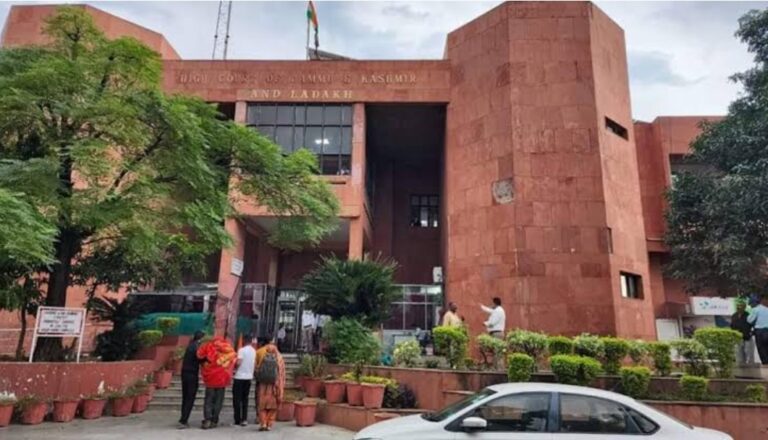Jammu & Kashmir High Court clarifies GST applicability for contractors under Contract Condition No. 49
In a significant ruling with implications for contractors engaged in public works, the Jammu and Kashmir High Court has held that the applicable Goods and Services Tax (GST) rate is to be determined based on the last date for submission of tenders, not the date when the work is awarded or commenced. This decision was delivered in the review petition titled Vishal Verma vs. Union of India (RP No. 43/2024).
Key Highlights of the Judgment
The bench, comprising Justices Sanjeev Kumar and Puneet Gupta, referred to Special Condition No. 49 of the contract agreement. The court emphasized that contractors are bound by the condition that mandates payment of GST at the rate prevailing on the final tender submission date.
The petitioner, proprietor of M/s Kiran Constructions, had challenged a demand notice for payment of differential GST, arguing that GST should be levied based on the date the services were supplied, as per Section 13 of the CGST Act. The petitioner had submitted the tender on 1 August 2017—when the GST rate on works contracts was 18%, as per SRO-GST-11 dated 8 July 2017. However, the actual work commenced after a later notification on 21 September 2017, which reduced the GST rate to 12%.
Court’s Observation
The High Court ruled that despite the GST Council’s suggestion to reduce the rate to 12%, the tender deadline date governs the applicable tax rate. Since the 18% GST rate was applicable on 1 August 2017—the last date for tender submission—the petitioner is liable to pay GST at that rate.
The court also noted that the reduced GST rate was applicable only to certain specified composite supplies, such as contracts involving historical monuments, canals, and pipelines. In this case, the petitioner’s contract did not fall within that scope.
The court found no merit in the review application and held that there were no new facts or legal errors justifying a modification of the previous ruling. The petitioner had failed to challenge the contractual provision in time and was therefore bound by its terms.
Implications of the Ruling
This judgment sets a clear precedent for contractors in Jammu and Kashmir and possibly other regions with similar contractual clauses. It underscores the importance of carefully reviewing and adhering to tender conditions—especially regarding tax liabilities.
Contractors must now ensure that the applicable GST rate is determined based on the tender deadline and not rely on subsequent rate changes unless those are specifically accommodated in the contract.
Conclusion
The decision in Vishal Verma vs. Union of India reinforces the legal binding nature of contract conditions and clarifies the application of GST in public works contracts. Contractors are advised to assess tax liabilities strictly as per the tender terms to avoid future disputes or unexpected tax demands.
READ MORE
Vivad Se Vishwas Scheme 2024: Last 9 Days Left – Settle Income Tax Disputes Before April 30
Cancer Diagnostic R&D Services Not Exempt from GST, Rules Maharashtra AAR
Goa Govt Announces 50% GST Rebate for Hotels in Hinterland Areas to Boost Tourism Investment
